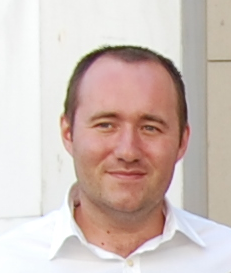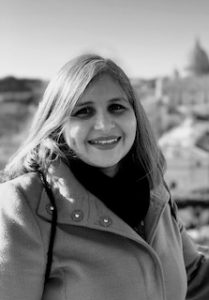

- Cet évènement est passé
Séminaires scientifiques de la FIL – Septembre 2022
29 septembre 2022 à 14 h 00 min - 15 h 00 min
Navigation évènement
Date et heure :
Jeudi 29 septembre 2022, 14:00 – 15:00
Lieu :
Campus de la Doua
amphithéatre Claude Chappe
Visioconférence :
Programme :
- 14:00 – 14:30 : Adrian Basarab « Image Restoration Using Concepts From Quantum Mechanics »
Abstract:
Decomposition of digital signals and images into particular basis or dictionaries is a very useful tool in number of applications. Such a decomposition is commonly obtained using fixed transforms (e.g., Fourier, DCT or wavelet) or data-driven dictionaries learned from example databases or from the signal or image itself (e.g., by exploiting the redundancy within patches extracted from one or several images). This talk will present a new idea of constructing such a signal or image-dependent bases inspired by quantum mechanics tools, i.e., by considering the signal or image as a potential in the discretized Schrödinger equation. This quantum signal or image processing method based on the theory of single particle quantum systems is further generalized to patch-wise image representation using the concepts of quantum many-body interaction. The potential of the proposed adaptive decomposition is illustrated through denoising and deconvolution results in presence of Gaussian, Poisson, and speckle noise.
Speaker bio:
 Adrian Basarab received the M.S. and PhD degrees in signal and image processing from the National Institute for Applied Sciences of Lyon, France, in 2005 and 2008. Between 2009 (respectively 2016) and 2021 he was assistant (respectively associate) professor at the University Paul Sabatier Toulouse 3 and a member of IRIT laboratory (UMR CNRS 5505). Since 2021, he is full professor at the University of Lyon and a member of CREATIS laboratory. His research interests include medical imaging and more particularly inverse problems (deconvolution, super-resolution, compressive sampling, beamforming, image registration and fusion) applied to ultrasound image formation, ultrasound elastography, cardiac ultrasound, quantitative acoustic microscopy, computed tomography and magnetic resonance imaging. Adrian Basarab has been elevated to the grade of IEEE Senior Member in 2019. He served as associate editor for Digital Signal Processing (Elsevier) from 2015 to 2021 and was a member of the French National Council of Universities Section 61 – Computer sciences, Automatic Control and Signal Processing from 2010 to 2015. In 2017, he was guest co-editor for the IEEE TUFFC special issue on « Sparsity driven methods in medical ultrasound ». Between 2018 and 2021, Adrian Basarab was the head of Computational Imaging and Vision research group of IRIT laboratory. Since 2019, he is a member of the EURASIP Technical Area Committee Biomedical Image & Signal Analytics and since 2020 a member of the IEEE Ultrasonics Symposium Technical Program Committee.
Adrian Basarab received the M.S. and PhD degrees in signal and image processing from the National Institute for Applied Sciences of Lyon, France, in 2005 and 2008. Between 2009 (respectively 2016) and 2021 he was assistant (respectively associate) professor at the University Paul Sabatier Toulouse 3 and a member of IRIT laboratory (UMR CNRS 5505). Since 2021, he is full professor at the University of Lyon and a member of CREATIS laboratory. His research interests include medical imaging and more particularly inverse problems (deconvolution, super-resolution, compressive sampling, beamforming, image registration and fusion) applied to ultrasound image formation, ultrasound elastography, cardiac ultrasound, quantitative acoustic microscopy, computed tomography and magnetic resonance imaging. Adrian Basarab has been elevated to the grade of IEEE Senior Member in 2019. He served as associate editor for Digital Signal Processing (Elsevier) from 2015 to 2021 and was a member of the French National Council of Universities Section 61 – Computer sciences, Automatic Control and Signal Processing from 2010 to 2015. In 2017, he was guest co-editor for the IEEE TUFFC special issue on « Sparsity driven methods in medical ultrasound ». Between 2018 and 2021, Adrian Basarab was the head of Computational Imaging and Vision research group of IRIT laboratory. Since 2019, he is a member of the EURASIP Technical Area Committee Biomedical Image & Signal Analytics and since 2020 a member of the IEEE Ultrasonics Symposium Technical Program Committee.
- 14:30 – 15:00 : Shaifali Parashar « Differential Geometry for Solving 3D Computer Vision Problems »
Abstratct:
Differential geometry is extensively used in physics to study the behaviour of 3D spaces. Studying differential (or local) structure of a surface under a deformation helps to express local constraints that can be exploited to solve key computer vision problems such as 3D reconstruction or 3D registration. I will discuss what are the benefits of the ‘local’ approaches over the ‘global’ ones, the challenges and what does the future look like for the ‘local’ methods.
Speaker bio:

Shaifali Parashar is a CNRS Research Scientist at LIRIS, INSA Lyon since January 2022. Previously, she worked as a PostDoc researcher at CVLab, EPFL. Her research interests are 3D computer vision including non-rigid 3D reconstruction from images, 3D shape registration and deformable SLAM.
- 15:00 – 15:30 : Moment de convivialité et d’échange autour d’un café / thé

